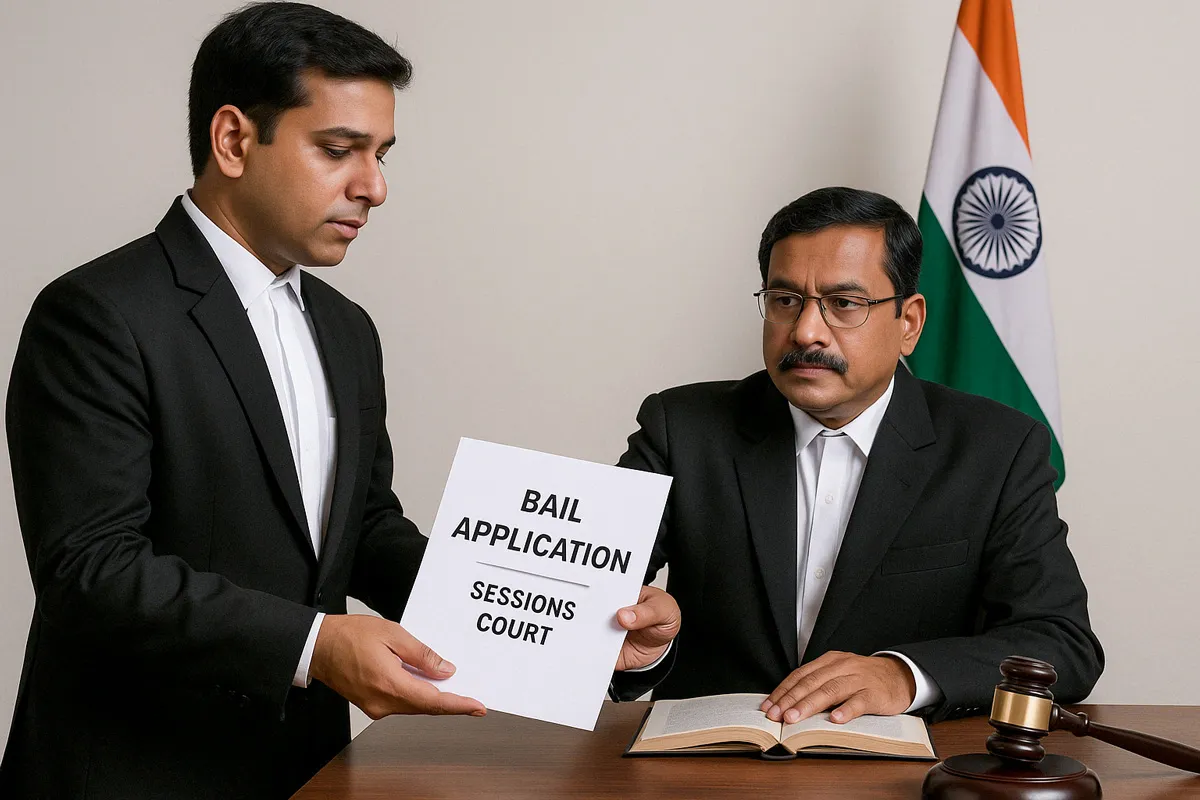What is Anticipatory Bail, and When Can You Apply?
Anticipatory bail is a legal provision that protects from arrest. It allows an individual to seek bail in anticipation of arrest. This ensures their freedom until the charges are proven in court. This provision is available under Section 482 Bharatiya Nagarik Suraksha Sanhita, 2023 (BNSS). Unlike regular bail, which can only be applied for after an arrest, anticipatory bail provides preventive relief. It is available for individuals who fear arrest before it occurs.
What is Anticipatory Bail?
Anticipatory bail refers to bail granted in anticipation of an arrest. Any person who apprehends arrest for a non-bailable offense in India can apply for anticipatory bail. Before the new criminal laws were passed, Section 438 of the Code of Criminal Procedure, 1973, covered anticipatory bail.
Key Features of Anticipatory Bail
- Pre-Arrest Relief: Anticipatory bail allows a person to apply for bail before an arrest is made. It offers protection from unlawful detention.
- Non-Bailable Offense: This provision applies primarily to non-bailable offenses. It is for individuals who fear arrest but have not yet been charged.
- Court Jurisdiction: Applications for anticipatory bail are typically heard by the Sessions Court or the High Court.
- Conditional Bail: Courts may impose certain conditions, such as restrictions on travel or orders to stay within the jurisdiction.
Legal Provisions Under Section 482 of the BNNS
Under Section 482 of the BNNS, the court may grant anticipatory bail. This is possible if the individual can demonstrate a reasonable apprehension of arrest. The main purpose of anticipatory bail is to prevent unjust or arbitrary detention, particularly for non-bailable offenses.
Section 482(1): This section grants the right to apply for anticipatory bail. It is applicable when an individual believes there is a risk of being arrested for a non-bailable offense.
Conditions Set by the Court: The court may impose certain conditions to ensure compliance with legal procedures. These conditions can include requirements for regular attendance. Additionally, the court may prohibit tampering with evidence and place travel restrictions on the individual.
Protection Scope: Anticipatory bail protects by preventing arrest. Even if an FIR (First Information Report) is filed, the person cannot be arrested without prior court approval.
When Can Anticipatory Bail Be Applied For?
You can apply for anticipatory bail when:
- Reasonable Fear of Arrest: An individual believes they will be arrested due to an accusation. This belief arises even before an arrest occurs.
- Non-Bailable Offense: When facing charges for non-bailable offenses, anticipatory bail can help avoid pretrial detention.
- Falsely Accused: If you are concerned about being falsely accused, anticipatory bail may be an option. This is especially true if the criminal case is motivated by personal vendettas or political reasons.
- Family Disputes: In cases like family disputes or domestic conflicts where arrest may be a possibility.
Procedure on How to Apply for Anticipatory Bail

To know more about how to get anticipatory bail, follow these key steps to ensure a smooth process.
Draft an Application:

Prepare an anticipatory bail application outlining the reasons for fearing arrest. The application should also explain why the individual should be granted bail.
File the Application:

Submit the application to the Sessions Court or the High Court having jurisdiction over the case.
Hearing:

The court will assess both the defense and the prosecution’s arguments before making a decision.
Granting Bail:

If the court is satisfied with the arguments, it will grant bail, often under specific conditions.
Higher Court Appeal:

If the anticipatory bail is rejected, you can approach a higher court for further relief.
Conditions Imposed While Granting Anticipatory Bail
When granting anticipatory bail, courts may impose certain conditions:
- Availability for Interrogation: The applicant must be available for questioning by the authorities.
- No Tampering with Evidence: The applicant cannot tamper with any evidence or influence witnesses.
- No Leaving Jurisdiction: The applicant may be restricted from leaving the jurisdiction without court approval.
Exceptions Where Anticipatory Bail May Not Be Granted
While anticipatory bail can be a protective measure, it is not granted in every case. Exceptions include:
- Heinous Crimes: For offenses like murder, rape, or terrorism, anticipatory bail is typically not granted.
- Risk to Public Safety: If granting bail would compromise public security or lead to societal unrest.
- Habitual Offenders: If the individual has a history of committing serious crimes, anticipatory bail may be denied.
Landmark Judgments on Anticipatory Bail
- Gurbaksh Singh Sibbia v. State of Punjab (1980): The Supreme Court held that anticipatory bail is not an inherent right but a preventive measure.
- Siddhartha S. M. v. State of Maharashtra (2010): The court clarified that anticipatory bail should be granted unless there are exceptional reasons to deny it.
- Sushila Agarwal v. State (2020): The Supreme Court ruled that anticipatory bail does not have a mandatory time limit imposed by the court.
Benefits of Anticipatory Bail
- Prevents Harassment: Offers protection from unnecessary arrest, allowing individuals to continue their daily lives without undue stress.
- Safeguards Liberty: Ensures that personal freedoms are not compromised unjustly.
- Facilitates Legal Proceedings: Helps individuals participate in investigations without being in custody, allowing them to assist in their defense.
- Reduces Bail Denials: By applying early, anticipatory bail reduces the chances of being wrongfully detained for longer durations.
Conclusion
Anticipatory bail is a crucial legal tool that protects individuals from arbitrary arrest while ensuring justice is served fairly. Anticipatory bail balances the rights of the accused with public interest. It safeguards personal liberty and upholds the rule of law. If you or someone you know is facing potential arrest, anticipatory bail can provide crucial protection. It ensures safety until the matter is resolved in court.
Disclaimer: The information provided is for general guidance only and should not be considered legal advice. For help with anticipatory bail, we suggest talking to a qualified lawyer at Prashastha Legal. They can give you advice that fits your specific situation.







